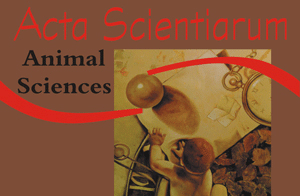ABSTRACT.
The aim of this study was to evaluate the physicochemical quality and bioactive compounds of Apis mellifera honey as well as the alterations in the quality of A. mellifera honey after being used in the feeding of Melipona subnitida colonies. A. mellifera honeys were collected in apiaries, homogenised and used as feed for M. subnitida bees for 30 days. Every five days, honey samples were collected and evaluated for physicochemical characteristics and bioactive compounds. The treatments consisted of natural honeys of A. mellifera and M. subnitida and honey of M. subnitida bee after being fed with A. mellifera honey (modified honey). M. subnitida bees, when fed with honey from A. mellifera, modified some of its characteristics, such as moisture, reducing sugars, diastase activity, colour and flavonoid content. Natural and modified honeys of A. mellifera were similar to each other and different from M. subnitida honey in terms of minerals, free acidity, electrical conductivity, phenolic content and antioxidant activity. Treatments were similar in terms of sucrose, insoluble matter, hydroxymethylfurfural and water activity. In general, the quality attributes of the modified honey were closer to the honey of A. mellifera than to the natural M. subnitida honey.
Keywords:
activity; bioactive compounds; meliponiculture; physicochemical characteristics; quality control; semi-arid climate
